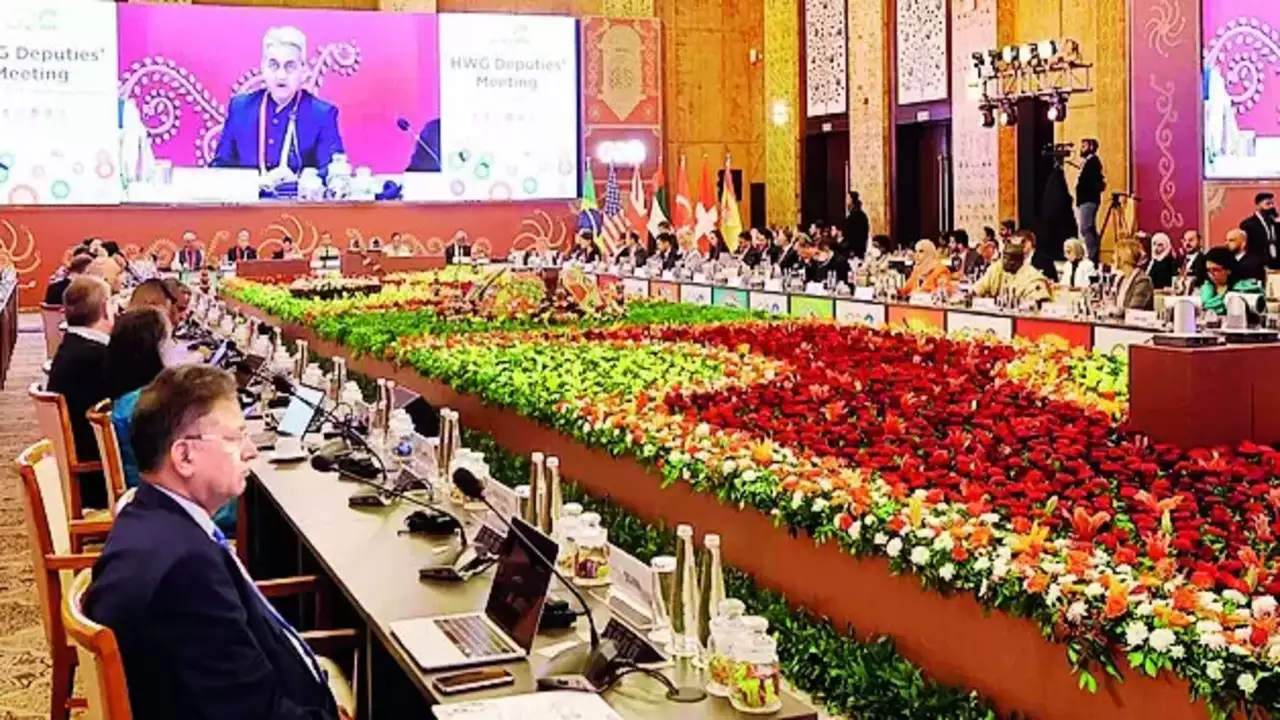The first-ever global summit on traditional medicine organized by The World Health Organization (WHO) held in Gujarat, India on August 17-18, 2023 had participation from over 75 nations. The Ministry of Ayush, Government of India co-hosted the summit, which explored the role of traditional, complementary, and integrative medicine in addressing pressing health challenges and driving progress in global health and sustainable development.
It was held alongside the G20 health ministerial meeting, to mobilize political commitment and evidence-based action on traditional medicine, which is a first port of call for millions of people worldwide to address their health and well-being needs. Technical discussions on research, evidence and learning; policy, data, and regulation; innovation and digital health; and biodiversity, equity and indigenous knowledge took place at the summit.
Speaking at the inauguration, Dr Tedros Adhanom Ghebreyesus, WHO Director-General said, “One of the great strengths of traditional medicine is the understanding of the intimate links between the health of humans and our environment. That’s why WHO is committed to supporting countries to unlock the potential of traditional medicine, through the Global Traditional Medicine Centre in Jamnagar.”

Stressing that traditional medicine was “as old as humanity itself”, the WHO chief urged countries to examine how best to incorporate traditional and complementary medicine into their health systems through the Gujarat Declaration, the outcome document of the summit, which was adopted at the summit’s conclusion.
India’s Minister of Health and Family Welfare Dr. Mansukh Mandaviya, in his address, highlighted the role of the Global centre of traditional medicine in Gujarat in leading the way towards a more prominent role of traditional medicine in mainstream healthcare.
“The pharmaceutical and cosmetic industries are both showing significant interest in traditional medicine and more than 170 countries around the world are utilizing it,” he said adding that the summit provides an ideal platform for international collaboration and the exchange of ideas to promote best practices in the sector.
An experiential Ayurveda, Yoga and Naturopathy, Unani, Siddha and Homeopathy (AYUSH) Exhibition Zone was the highlight of the summit. It featured an exhibition of traditional medicine systems from WHO’s six regions. The theme of the exhibition was ‘Ayush for Planetary Health and Well-being’. The Zone welcomed visitors with a display of medicinal plants including those used in Ayurveda.
The exhibition also had interactive kiosks, which allowed visitors to access comprehensive information about Ayush, including the location of all Ayush hospitals and a digital library with research papers related to the field. A virtual reality experience of Ayush Healthcare services was available, where visitors could engage in an immersive experience, featuring an AI-based Ayurveda Pulse diagnosis, body constitution analysis, and even a live Yoga demonstration.
For centuries, traditional and complementary medicine has been an integral resource for health in households and communities. It has been at the frontiers of medicine and science laying the foundation for conventional medical texts. Around 40% of pharmaceutical products today have a natural product basis, and landmark drugs derive from traditional medicine, including aspirin, artemisinin, and childhood cancer treatments.
New research, including on genomics and artificial intelligence are entering the field, and there are growing industries for herbal medicines, natural products, health, wellness and related travel. Currently, 170 Member States reported to WHO on the use of traditional medicine and have requested evidence and data to inform policies, standards and regulation for its safe, cost-effective and equitable use.
In response to this increased global interest and demand, WHO, with the support of the Government of India, established in March 2022 the WHO Global Centre for Traditional Medicine as a knowledge hub with a mission to catalyse ancient wisdom and modern science for the health and well-being of people and the planet. The WHO Traditional Medicine Centre scales up WHO’s existing capacity in traditional medicine and supplements the core WHO functions of governance, norms and country support carried out across the six regional Offices and Headquarters.
The Centre focuses on partnership, evidence, data, biodiversity and innovation to optimize the contribution of traditional medicine to global health, universal health coverage, and sustainable development, and is also guided by respect for local heritages, resources and rights.
